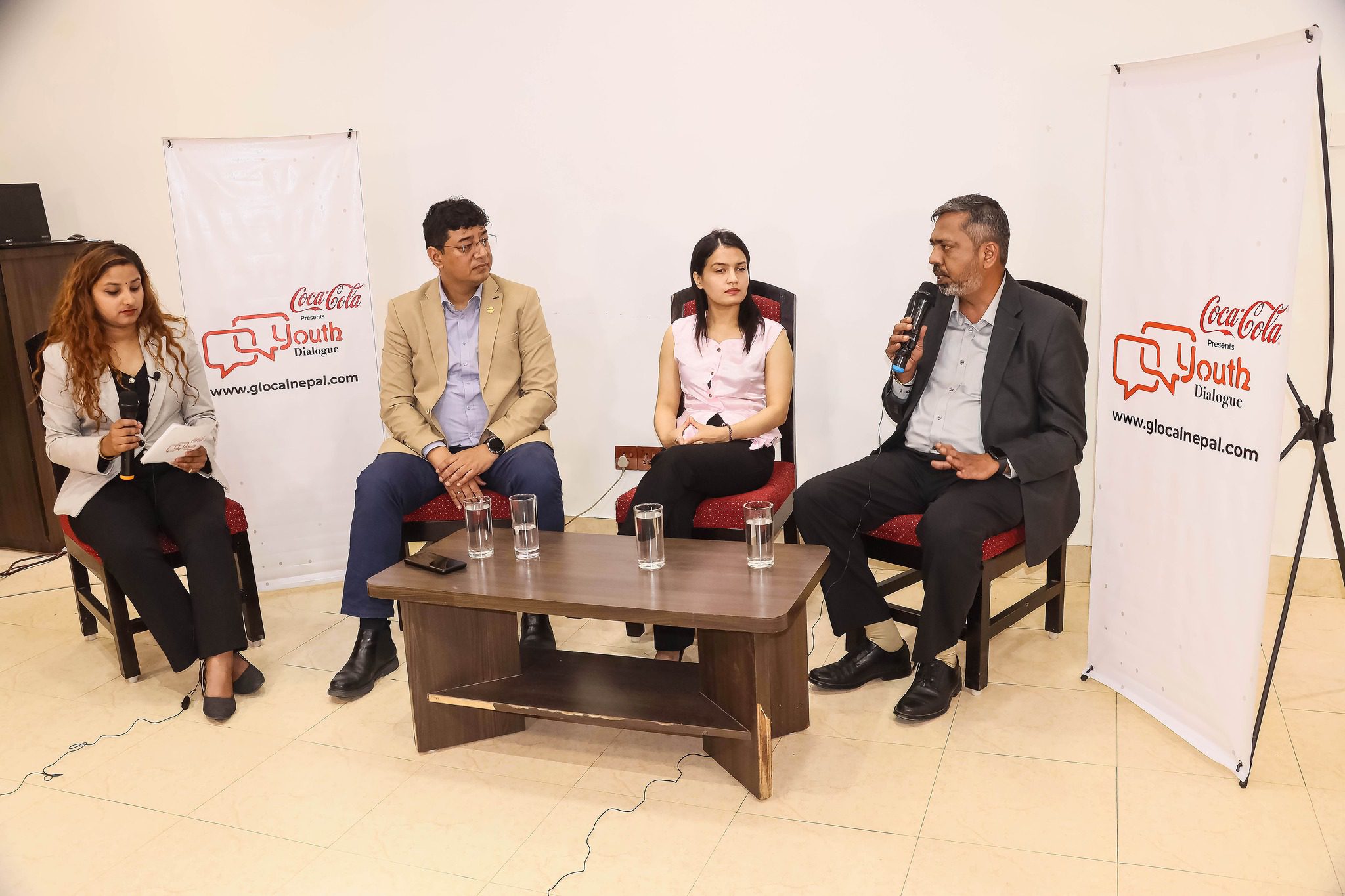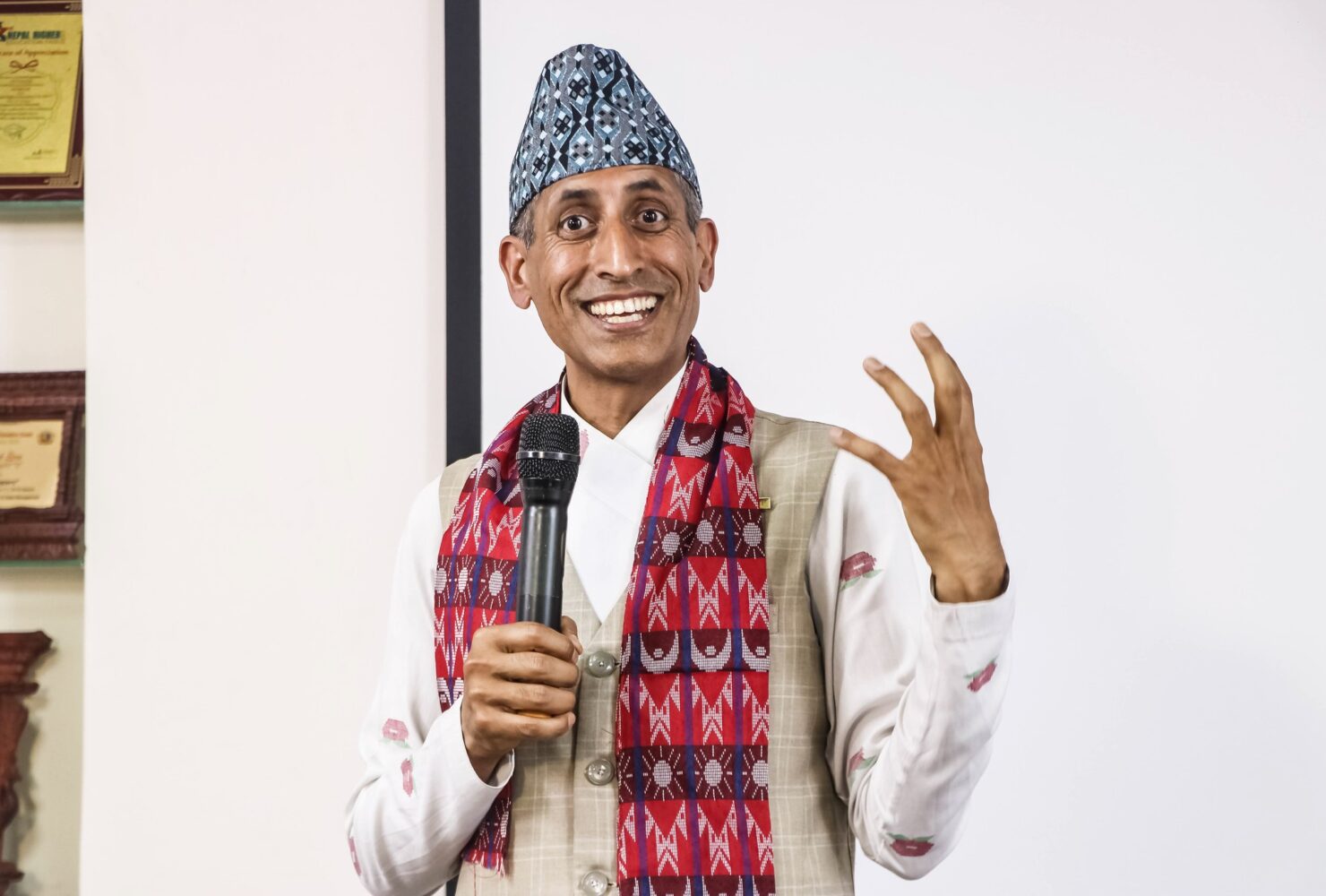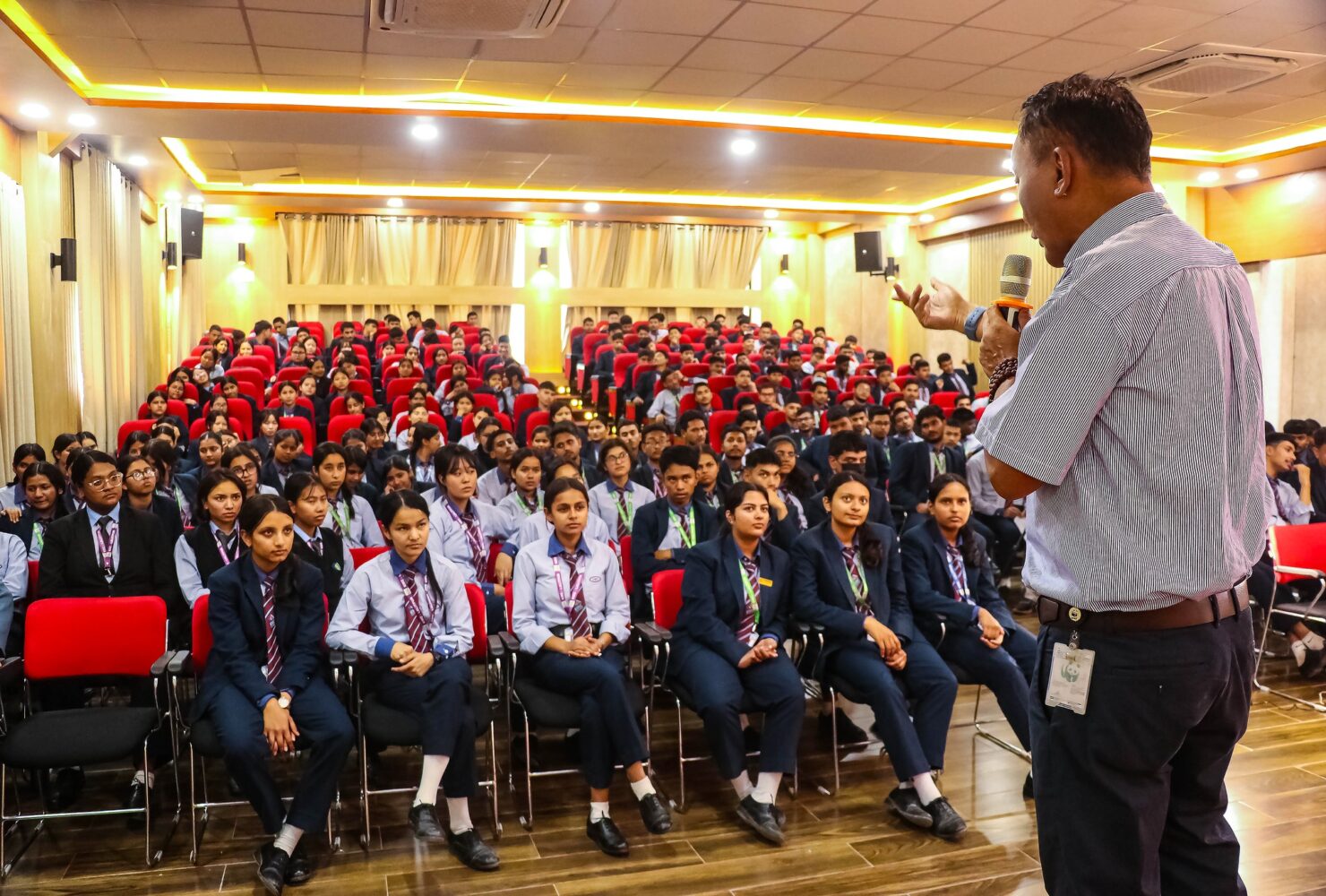Glocal Pvt. Ltd. organizes the monthly series of youth-focused discussion sessions known as Coca-Cola Presents Youth Dialogue. It is a platform where different people from different sectors share their experiences, challenges, and motivations.
Youth dialogue delivered fascinating sessions on a variety of topics like sport, environment, entertainment, business, culture, and tourism to develop skills for an ever-changing market. The speakers of the program include youth influencers, skillful people, entrepreneurs, politicians, and celebrities. The discussion series is one hour long and includes a live audience.
The Youth Dialogue 2.0 episode of Coca-Cola presents Youth Dialogue on the topic “Solution to beat plastic pollution” and ends with a successful presence of students amidst an event held at the premises of Apex College, Devkota Sadak, Kathmandu. The dialogue had the presence of three distinguished panelists as the invitees of the Youth Dialogue and they were:
1.Mr. Rajesh Ayapilla, Director – CSR and Sustainability, Coca Cola India and South-West Asia (INSWA)
2. Mr. Suman Shakya, Consultant, Founder at Tangent Waves
3.Ms. Sagarika Bhatta, Founder/Chairperson at Powershift Nepal and CEO at Environmental Research Service and Training Center
Here is the gist of the discussion
When asked about the relevance of the subject “solution for plastic pollution” in a country like Nepal and how we can overcome the problem of plastic overconsumption, Mr. Suman Shakya first expressed his happiness to be part of the program. He compared plastic overconsumption to social media addiction and stressed the need to manage plastic waste due to its impact on climate change, especially given Nepal’s mountainous location. He emphasized individual responsibility in reducing plastic usage and shared his personal efforts, including using cloth bags and promoting eco-friendly practices in his plastic-free and solar-powered company, “Smart Paani.”
Ms. Sagarika introduced her initiative organization Power Shift Nepal’s objective of addressing climate and environmental issues through the leadership of young and marginalized women. She emphasized recognizing the current state as a climate crisis and focused on empowering young women to voice their experiences of inequality in climate action.
She further stated Power Shift Nepal’s initiatives, which included waste management, organic waste training, upcycling, energy transitioning, and fossil fuel-free urban space campaigns, with a focus on just and equitable energy transitioning for marginalized communities. Ms. Bhatta also highlighted challenges faced by women sanitation workers and advocated for promoting their financial independence through skill-building training, such as electric bicycle riding sessions, for potential employment in delivery services.
Mr. Rajesh shared that Coca-Cola had been actively working on mitigating its packaging footprint even before announcing the “World Without Waste” initiative in 2018. He explained the three main pillars of the initiative: ensuring recyclable packaging, reducing virgin content usage, and focusing on collection and recycling. By 2030, the company aimed to collect and recycle the same amount of packaging, contributing to effective recycling and benefiting not only Coca-Cola but also other organizations with similar sustainability goals.
Role of Community engagement and youth participation in successful Environmental Conservation
Mr. Suman highlighted the need to shift the narrative towards positive developments to influence the youth. He stressed the importance of creating awareness about pollution and plastic waste from an early age to shape their actions as they grow up. He called for collective efforts and believed that united community action could bring meaningful changes for Nepal’s betterment.
Ms. Sagarika emphasized the significance of behavioral changes and capacity building in communities and among the youth. She noted a lack of environmental consciousness and the need for greater youth engagement to address environmental challenges effectively.
She added when it comes to youth participation, youth-led organizations play a crucial role in addressing environmental challenges. These organizations mobilize a larger number of youth for advocacy efforts, raising awareness among policymakers and experts. Ms. Bhatta emphasized that youth are instrumental in driving positive changes in the community, especially considering the urgent situation highlighted by the recent IPCC report. She stressed the importance of youth advocating not only at the national level but also on international platforms, calling for action from rich industrialized countries to address environmental issues.
Mr. Rajesh supported the role of youth participation in sustainability projects, highlighting the importance of community engagement and ownership for long-term benefits. He viewed youth and community engagement as essential in all environmental initiatives, fostering a social connection to their programs.
Ways to foster ownership from stakeholders and public, for sustainability, particularly in dealing with Plastic Overconsumption
Mr. Suman urged caution in plastic usage, especially avoiding harmful single-use plastics, and encouraged youth to take initiative and support advocacy groups to pressure the government for change. He cited a project with a Netherlands-based company that demonstrated its effects on marine life and potential human contamination as evidence of plastic pollution’s harmful impact on the environment and health, advocating for proactive reduction of plastic waste.
Ms. Bhatta highlighted the need for environmental inspectors and dedicated agencies to address environmental monitoring shortcomings. She emphasized that strong monitoring, maintenance, and environmental protection were crucial for effective solutions. She mentioned past failed projects like electricity generation from waste initiated by Kathmandu Metropolitan City in lack of strong monitoring and inspection.
On Addressing and promoting environmental sustainability from the stakeholder’s point, as a giant multinational company as Coca-Cola, Mr. Ayapilla discussed Coca-Cola’s goal of achieving 100 percent packaging neutrality by 2030 through Extended Producer Responsibility (EPR) where producers take responsibility for their products’ recycling throughout the end-use cycle. He mentioned, While their efforts in Nepal were voluntary, in India, it was mandatory and closely monitored where compliance provided was both a legal and social license. He highlighted their focus on PET packaging, a recyclable material, and emphasized their commitment to sustainability through the “A World Without Waste” initiative, aiming to collect and recycle PET, cans, and Tetra banks.
Tips for youth combating plastic pollution and promoting Environmental Sustainability
Mr. Suman stressed the importance of the advice’s impact, which depends on how many people actually follow it. In order to combat plastic pollution in Nepal, he urged the youth to focus on three key areas. Firstly, he emphasized the need for them to develop effective communication skills, enabling them to confidently express their thoughts individually or in groups. Secondly, he highlighted the significance of learning Nepali typing, as it is essential for progress in Nepal, where all legal documents and paperwork are in Nepali. Additionally, he encouraged the youth to actively engage in politics and the government system, emphasizing the importance of making changes from within, such as creating and monitoring laws, for effective implementation. He stressed that waiting for the current system to act was not enough; instead, they needed to get involved and drive positive change from within the system.
Ms. Sagarika, another panelist, concurred with Mr. Suman’s concerns about dealing with government authorities and local bodies, and she emphasized the need for environmental awareness among everyone, not just those directly involved in environmental issues. She advised starting environmental conservation awareness in schools and recommended a curriculum that is easy to understand for students. Ms. Bhatta encouraged the youth to initiate small changes at home, such as waste segregation and composting, and to be mindful of transportation choices to reduce carbon footprints. She recommended following the 5R principles for plastic waste and also emphasized understanding the importance of gender equality, food security, and climate actions. Overall, she conveyed that individuals, especially the youth, could make a positive impact through small initiatives at home and college to promote effective environmental conservation efforts.
Mr. Rajesh aimed to reinforce Ms. Sagarika’s point and engaged the audience by asking how many of them had two dustbins in their kitchens at home. He urged youth to remember that charity begins at home, and as youth, they have the power to be change-makers. His advice was simple: start waste segregation at home and ensure that the garbage collector picks up the waste separately. Mr. Ayapilla observed that sometimes, even when people segregate the waste, the collector would mix it all together again, despite having a vehicle capable of segregating it. By driving this small change in their homes, colonies, apartments, or wherever they lived, they would make a significant contribution to creating a cleaner and better world.
When asked by an audience about the significance of rethinking the 5 R principle, as it appeared to be less discussed,
Ms. Sagarika stressed the need to rethink the 5 R principle, advocating for a focus on reducing consumption as the initial step. She encouraged people to think carefully before buying any product and to refuse unnecessary items, favoring reusable materials over single-use plastics. Recycling should only be a last resort when no other sustainable options are available. She expressed concern about the excessive use of plastic, holding consumers and corporate houses responsible. She also criticized the lack of government action on the issue.
Ms. Bhatta emphasized corporate responsibility in pollution and proposed ideas for Coca-Cola, like incentivizing recycling with vending machines.
Acknowledging Ms Sagarika’s concern, Mr. Rajesh highlighted their company’s commitment to sustainability, mentioning their plastic collection program and efforts to explore eco-friendly business practices, such as lightweighting bottles and considering packageless options.
While Ms. Bhatta mentioned reverse vending machines, Mr. Ayapilla acknowledged their limitations due to cost and placement constraints. Their focus is on finding more effective collection mechanisms for proper recycling and waste management, driven by their dedication to sustainability and constant innovation.
In conclusion, the panelists urged youths to proactively combat plastic pollution through effective communication, political engagement, and small lifestyle changes. They emphasized the significance of individual responsibility, corporate commitment, and collective action to create a cleaner, more sustainable future for Nepal.





